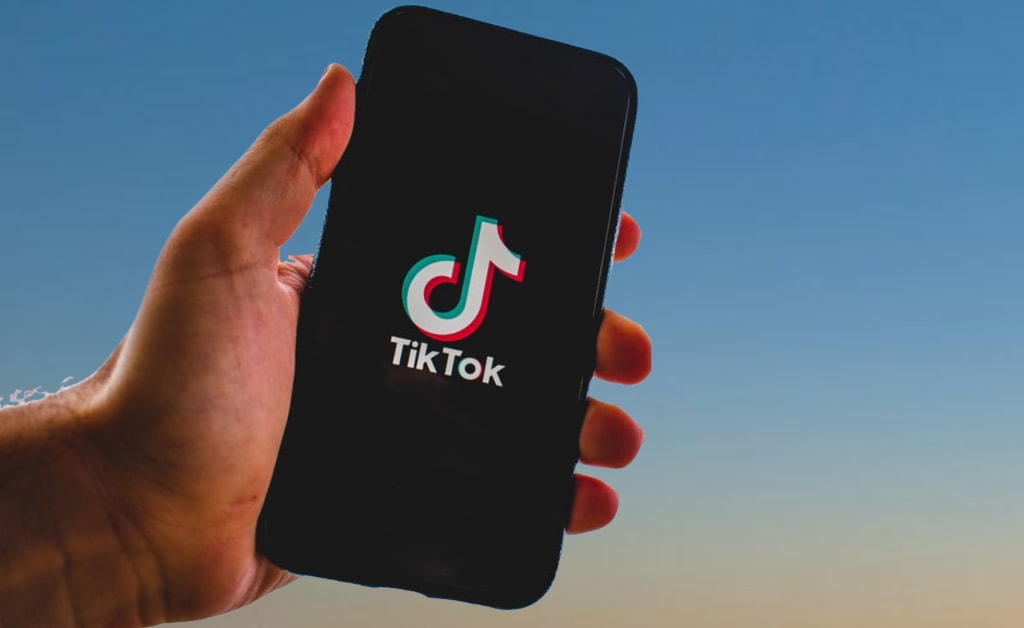Why does the United States want TikTok to be banned?
The role of national security

The TikTok ban information provides some context for the events that led to the US government's decision to ban the app. The Committee on Foreign Investment in the United States (CFIUS) opened an investigation into the Chinese firm ByteDance's acquisition of the app Musical.ly, which later became TikTok, in 2017.
Secretary of State Mike Pompeo stated in July 2020 that the US government was considering banning TikTok due to national security and data privacy concerns. On August 6, 2020, President Trump signed an executive order prohibiting TikTok from operating in the United States unless it was sold to an American company within 45 days.
Because of its Chinese ownership, the Trump administration claimed TikTok posed a threat to national security, citing concerns that the app could be used to gather data on American citizens and provide that data to the Chinese government. ByteDance denied these claims, claiming that TikTok's data is stored outside of China and is therefore not subject to Chinese law.
Oracle and Walmart reached a preliminary agreement in September 2020 to purchase a 20% stake in TikTok Global, a newly formed company that would oversee TikTok's operations in the United States. However, this agreement was never finalized, and the Biden administration has suspended the ban while it investigates the potential security risks associated with TikTok.
The role of national security
Concerns about data privacy are closely linked to the Chinese Communist Party's (CCP) influence and the possibility of TikTok being used for espionage.
According to some experts, the CCP has a close relationship with ByteDance and could use TikTok to gather sensitive information about US citizens or engage in propaganda efforts. Furthermore, the CCP has a track record of using cyber espionage to obtain sensitive information from foreign governments and corporations, raising concerns that TikTok could be used for similar purposes.
TikTok has repeatedly denied any ties to the Chinese Communist Party and has stated that it operates independently of the Chinese government. The US government, however, remains skeptical of these claims, and the ongoing debate over TikTok's potential security risks has become a source of friction in US-China relations.
As a result, some lawmakers and experts have called for TikTok to be more strictly regulated and for greater oversight of its data practices to ensure that it is not being used for illegal purposes. They argue that these safeguards are required to protect national security and user privacy.
Economic and Political Concerns
In addition to concerns about data privacy and national security, TikTok's rapid growth in popularity has raised concerns about competition with American social media companies and China's economic power.
TikTok's success has been meteoric, with the app reaching over one billion users worldwide in just a few years. This growth has put TikTok in direct competition with American social media giants like Facebook, Twitter, and Instagram, who are concerned about losing market share and advertising revenue to the new upstart.
Furthermore, as China's economic power and influence grow, some US policymakers see TikTok and other Chinese tech firms as a potential threat to national security and economic stability. They are concerned that China's growing dominance in key industries such as technology and telecommunications will provide the country with an unfair advantage and undermine US economic interests.
These concerns have prompted calls for increased scrutiny and stricter regulation of Chinese tech companies operating in the United States, including TikTok. Some experts argue that these measures are necessary to protect the United States' economic and national security interests, as well as to provide a level playing field for American businesses.
The impact of the TikTok ban
The TikTok ban has sparked significant debate, with critics claiming that it sets a dangerous precedent for international trade and could harm US-China relations.
Many experts believe that the ban is an overreach of government power and that it could lead to a broader crackdown on Chinese tech companies operating in the United States. They are concerned that the ban will prompt retaliatory measures from China, escalating trade tensions and harming the global economy.
Furthermore, the ban has raised concerns about the government's role in regulating social media and other online platforms. Some argue that the government's efforts to ban TikTok violate free speech and limit information access, while others argue that the government has a responsibility to protect national security and user privacy.
The possible impact on US-China relations is also a source of concern. TikTok has become a flashpoint in US-China tensions, with both countries accusing the other of using technology for espionage and other nefarious purposes. The ban could strain relations further and make it more difficult for the two countries to reach an agreement on key issues such as trade and national security.
Overall, the banning controversy highlights the complex and multifaceted nature of the US-China relationship, emphasizing the need for greater cooperation and dialogue between the two countries.
Alternative Solutions
In response to TikTok's concerns about data privacy, national security, and economic competition, several proposals have been made to address these concerns.
The possibility of selling TikTok to an American company was one proposal that gained traction. President Trump issued an executive order in August 2020 requiring ByteDance to divest its US operations within 90 days. This prompted talks with several American companies, including Microsoft and Oracle, about acquiring TikTok's US operations. However, the negotiations failed, and TikTok remains under ByteDance's control.
Increased regulation and oversight of TikTok's data practices is another proposal. Some experts have advocated for stricter data privacy laws as well as greater transparency from TikTok regarding how it collects, stores, and uses user data. Furthermore, some lawmakers have proposed legislation requiring Chinese tech companies operating in the United States to follow the same data privacy and security standards as American companies.
International cooperation has also been proposed as a potential solution to TikTok's concerns. The United States and other countries could collaborate to establish global data privacy and security standards, ensuring that companies like TikTok are held to the same standards regardless of where they operate.
Overall, addressing TikTok's concerns will necessitate a multifaceted approach involving collaboration among governments, private companies, and international organizations. By collaborating, it may be possible to mitigate the risks posed by TikTok and other emerging technologies while maximizing their potential benefits.
Conclusion
The ongoing TikTok ban debate highlights several key points. Concerns about data privacy and national security, competition with American social media companies, and the potential threat posed by China's economic power are just a few examples. The ban's controversy has also raised questions about the government's role in regulating social media and online platforms, as well as the potential implications for international trade and US-China relations. Proposed solutions include selling TikTok to an American company, increased data regulation and oversight, and international collaboration to establish global standards. To address the concerns about TikTok, a multifaceted approach that balances national security concerns with economic and political considerations will be required.
About the Creator
Enjoyed the story? Support the Creator.
Subscribe for free to receive all their stories in your feed. You could also pledge your support or give them a one-off tip, letting them know you appreciate their work.





Comments
There are no comments for this story
Be the first to respond and start the conversation.